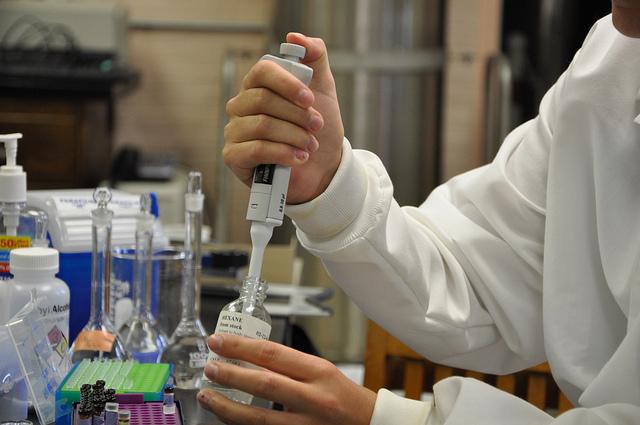In the wake of the chaos left by the Wisconsin primary elections Tuesday and the subsequent winners, the conversation about politics has only just begun. Along with politics and the debate over which politician should become our next president comes the debate of a slew of scientific issues. Unfortunately, these issues become largely political, and the loudest voices are often politicians who know nothing about the science they are either praising or condemning.
When scientific issues such as climate change or genetically modified products are brought up, the next words are often about which politician supports what, or which party is associated with either negative or positive views of the issue.
A common assumption about the Republican Party is it is anti-science, but the Democrats are as well, often against genetic modification technology. Neither party is innocent of this phenomenon, and the politicization of science usually causes more damage than good across the board.
What I am often left wondering is why we as a nation are leaving scientific decisions up to politicians, when the science itself is often overlooked. The voices of those who spend their lives dedicated to a certain area of research are often silenced, and so issues that are nonpartisan by nature are suddenly turned into polarizing topics. This creates an environment where science becomes a chess piece for politicians in their games of popularity, which can be devastating to those who have to deal with the impact.
On the topic of scientists and politicians, the scientific giant Nature, the international weekly journal of science, sums up the issue nicely: “Blurring the boundaries between these groups is not likely to redound to the benefit of politicians, but to the detriment of scientists.”
It is a sad truth to consider, but it is a massive issue. It is not uncommon for people, especially politicians, to prey on misinformation and propaganda to further their own agendas. False statements are released and bad information is spread, and political parties perpetuate the problem by convincing average citizens to rely on their stances instead of researching these issues and discovering the science for themselves. Often enough, they get away with this due to the refusal of individuals to make informed decisions themselves instead of merely adopting the views of whatever political party they align with.
Like I mentioned before, neither party is innocent in this phenomenon. The Democratic Party has a blatant issue with genetically modified products, and there have been an unfortunate amount of cases of fabricated science and data. Inversely, the Republican Party wants proof of climate change before they are willing to act on it, despite the overwhelming onslaught of consensus within the scientific community.
In both cases, those who know the science and dedicate their lives to researching it are in a general consensus. But the public has their doubts, and would rather listen to their political party than the experts. People would rather choose to listen to people who promote bad science and spread false information for the sake of their own agendas than those who actually know what they are talking about.
When you take a step back to consider the truth in that, it becomes clear how ridiculous and laughable this type of decision making truly is.
This issue doesn’t stop with the large, hot topic issues such as genetically modified food and climate change. Politics influence a ridiculous amount of science, even at the state level. A good example of this is the wolf hunting laws and regulation in the state of Wisconsin. The issue has been emotional and controversial for many reasons, and continues to be polarizing.
With flips from being threatened to endangered to cleared to be hunted, and everywhere in between, the executive decisions of whether or not the population should be protected or controlled became an issue between political identities. These individuals knew nothing of the impact their decision would have on the environment, and the experts were not consulted as part of the decision process.
Ultimately, what it comes down to is the lack of information on the part of the individual, as well as the “can’t be bothered” attitude when it comes to informing themselves. People need to stop relying on politicians to make their scientific decisions for them, since politicians are concerned with their own popularity instead of what impacts their stances cause.
Science should not be determined by politics, and the first step in changing this process comes down to the individual, and whether or not they are willing to make informed decisions for themselves.
Hannah Fricke ([email protected]) is a junior majoring in microbiology and life sciences communication.














